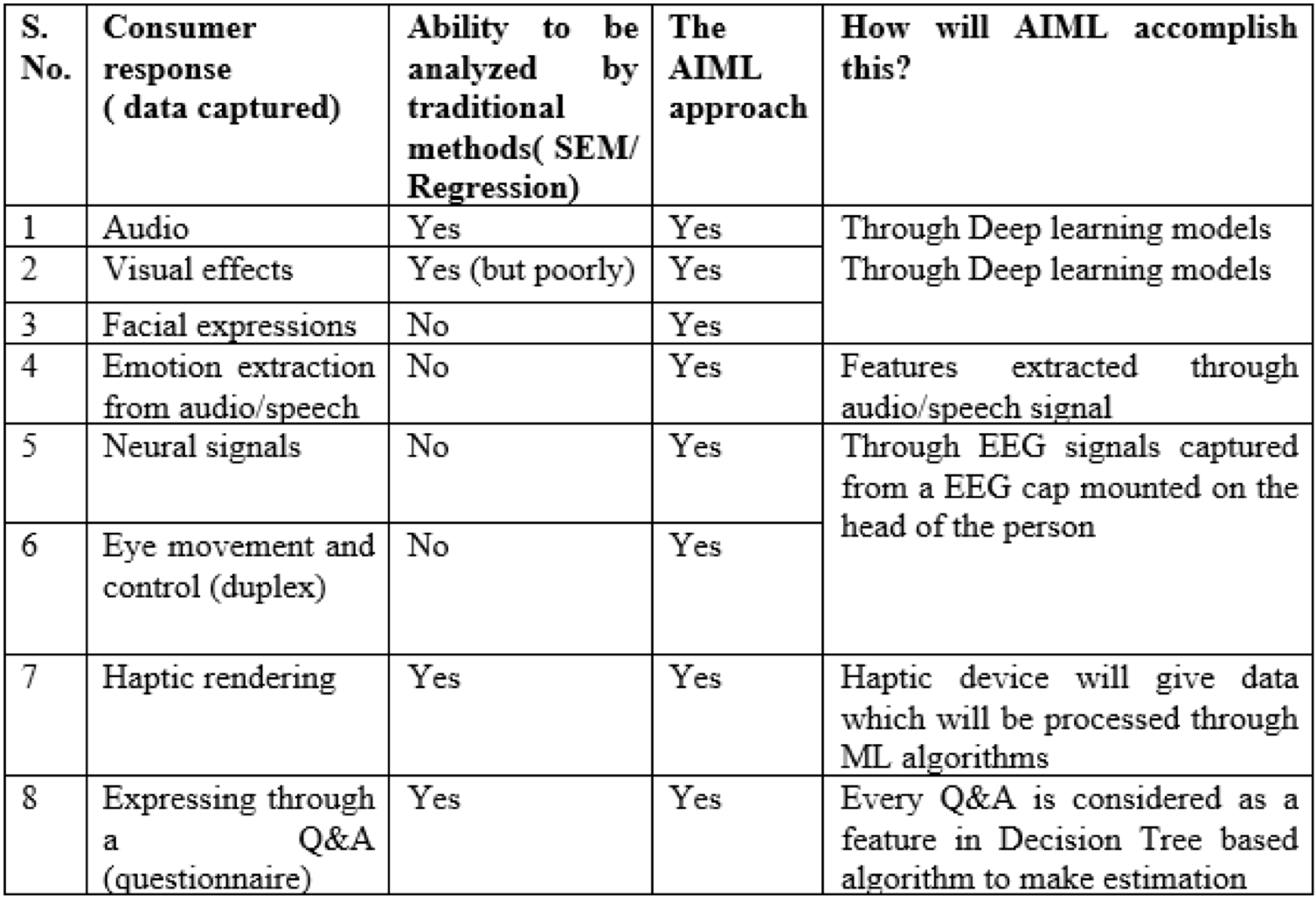California Management Review
California Management Review is a premier professional management journal for practitioners published at UC Berkeley Haas School of Business.
Rajeshwari Krishnamurthy and Rushikesh Borse

Image Credit | Markus Spiske
Metaverse promises to transform businesses across the world. The medium is immersive, interactive and immortalizes consumers like no other medium before. It gives a real-world experience and conveys an immense amount of information in a tiny fraction of time. The Metaverse consumer data is rich and multi-sensorial by way of audio, visual, facial, haptics, eye movements, gestures, neural and so on. Marketing leaders across the world agree that harnessing consumer data is a game changer that will provide a key competitive advantage to brands and businesses. However, there is apprehension and uncertainty on how to handle and use this mega data to an organization’s advantage (Egliston and Marcus, 2022). Companies like Nike, Gucci etc. who are active in Metaverse, have employed Data Engineers and Chief Data Officers to define aspects of specialized data infrastructure, data privacy, and data management.
“The Feeling Economy: Managing in the Next Generation of Artificial Intelligence (AI)” by Ming-Hui Huang, Roland Rust, & Vojislav Maksimovic. (Vol. 61/4) 2019.
Marketing organizations are engaging Metaverse to impact deeper consumer relationships, thus influencing their attitudes and behaviors towards brands. The user experience in the Metaverse is a radical shift by way of what he/she has ever experienced before. How this affects the consumer perception by way of brand outcomes (liking, preference, conviction, purchase etc.) is an area of great interest to researchers. The Metaverse campaign evinces multi sensorial responses from consumers (facial expressions, emotions, eye movements, haptics etc.) and the message is delivered with sound effects, visual/video quality, a certain degree of 3 D immersion, and so on. All these happen in an interactive way, with users in digital avatars, in the presence of other consumers. This is novel data that is mega in size and is complex. The traditional analytical methods using signal processing (SEM etc.) fall short of doing justice to analyzing this. The versatile Metaverse data needs a far superior methodological tool to process and predict outcomes. AIML hold out significant promise in this regard (Guo et al, 2022)
The expert machine learning algorithm follows an approach that matches and combines the numerous features of data into several permutations and combinations, that enable predicting outcomes (also known as ‘target function’) in a multi-dimensional manner. The inter related ness among the various data (facial, eye, emotion etc.) may provide a sharp insight into a consumer’s mind, and this correlation is made possible by Machine learning /Deep Learning techniques (Machine learning algorithms are inherently meant for handling multiple features of data which are termed as ‘independent variables’). The analysis of such data throws up the dependent variable, which in this case could be the behavioral or attitudinal outcome of the consumer, post their exposure to the Metaverse medium. This is of immense value to marketers, as they are looking to understand how their Metaverse campaigns have impacted consumers.
Presenti (Former Vice President, Meta) has emphasized that AI is making significant progress in creativity and self-supervised learning, that are critical in analyzing Metaverse data. Meta AI can create unified models that can understand multiple modalities simultaneously, while multi-tasking lip reading and speech recognition, or spotting disruptive media posts by using algos to recognize and process text, image or video —all in parallel.
The below table shows the differences between traditional methods of data analysis and an AIML based approach:

The traditional method of signal processing based approach also involves various sensors and is at times slow, less accurate and needs substantial human supervision. On the other hand, AIML analysis provides a more error free, accurate output, under minimal human supervision.
The output from AIML techniques provide numerous benefits to organizations using the metaverse apps. The ranking of the various features and the relationship graphs among them is possible, that will ensure prioritization of resources by organizations accordingly. This would ultimately help fine tune metaverse campaign development, in terms of design and exposure, thus achieving higher media efficiencies.
There are however, challenges using the MLDL process. These techniques suffer from an algorithmic injustice that rely only on historical data that may not representative (Rospigliosi, 2021). Teams end up building face recognition systems without considering the variety in population (Buolamwini & Gebru, 2018), or focusing only on Big Data sets with powerful platform monopolies such as Google, Amazon and Meta (Zuboff, 2019), and excluding the rest etc. All these may create a bias in analysis.
Metaverse is here to stay. And as organizations prepare to embrace this medium, it is equally important that they think and plan for the relevant data analytical tools that will enable the businesses to benefit from the Metaverse usage. Despite its challenges and constraints, an investment in AIML structures will go a long way in helping businesses predict customer responses accurately and hence plan for desired outcomes.
Buolamwini, Joy, and Timnit Gebru. “Gender shades: Intersectional accuracy disparities in commercial gender classification.” Conference on fairness, accountability and transparency. PMLR, 2018.
Egliston, Ben, and Marcus Carter. “Critical questions for Facebook’s virtual reality: data, power and the metaverse.” Internet Policy Review 10.4 (2021).
Y. Guo, T. Yu, J. Wu, et al. Artificial Intelligence for Metaverse: A Framework. CAAI Artificial Intelligence Research. 2022, 1 (1): 54-67. https://doi.org/10.26599/AIR.2022.9150004.
Rospigliosi, Pericles ‘asher. “Adopting the metaverse for learning environments means more use of deep learning artificial intelligence: this presents challenges and problems.” Interactive Learning Environments 30.9 (2022): 1573-1576.
Zuboff, Shoshana, et al. “Surveillance Capitalism: An Interview with Shoshana Zuboff.” Surveillance & Society 17.1/2 (2019): 257-266.
 Insight
Rajeshwari Krishnamurthy et al.
Insight
Rajeshwari Krishnamurthy et al.
 Insight
Fariba Latifi
Insight
Fariba Latifi